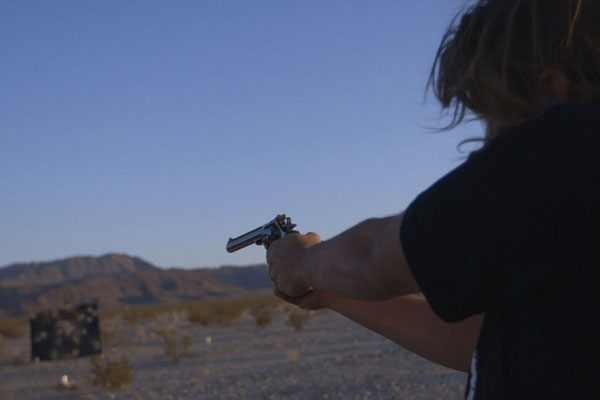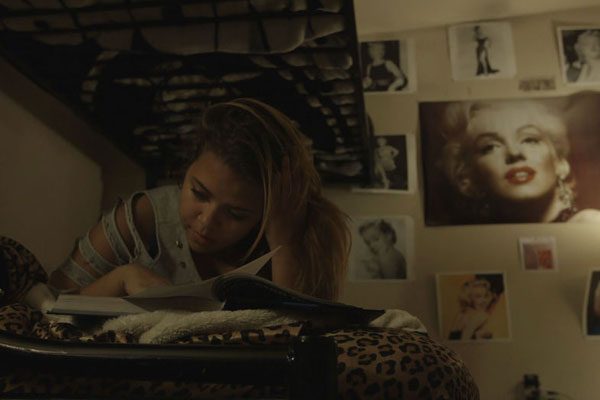Doco veterans and collaborative partners Keith Fulton and Lou Pepe have outdone themselves with their new film 'The Bad Kids'.
Not only does the documentary highlight one of the many setbacks of the structure of the education system in the western world, but a potential solution for it as well. Filled with emotional depth and rarely experienced poignant observation, the film won the Special Jury Prize at the Sundance Film Festival. Keith lays out some facts about the experience and how it affects not only the film's setting, Black Rock High School in Joshua Tree, but potentially the rest of the world.
“Lou and I had spent many years making short documentaries for the Gates Foundation, for a startup company of theirs called Teaching Channel,” says Keith. “We had specifically chosen for that assignment to work with difficult schools. Schools that in the States people often call 'failing schools'. And these schools are not failing because there are no devoted teachers at the school or because people aren't making their best efforts, but because we have an enormous population of students in the United States who are impoverished. Who don't have the stable homes that a lot of other kids have, who can't really be expected to excel at the same level.
 “So we chose to work in those kinds of environments partially just to show people that a so called 'failing school' isn't really failing. What's failing is our educational system in a broader sense, because we don't have a safety net for kids who can't achieve at the same rate.
“So we chose to work in those kinds of environments partially just to show people that a so called 'failing school' isn't really failing. What's failing is our educational system in a broader sense, because we don't have a safety net for kids who can't achieve at the same rate.“Black Rock High School was one of these places we encountered during our scouts for the Gates Foundation. It wasn't appropriate for that particular gig, but it just stuck in our minds as a place we wanted to go back to and maybe do a longer form documentary. It really represents a very positive side of what we can do education-wise for kids who otherwise fall through the cracks.”
Fifty years ago children didn't receive attention from adults, because they were meant to be seen and not heard. Now lawsuits, insurance and pederast paranoia are out of control and causing the same problem in a different, exacerbated exponentially of course for those from broken homes.
“You talk about those fears in education and I think that is partially what cripples our ability to help children who need extra help. For instance the principal at Black Rock High School Vonda Viland never fails to hug a student who needs a hug. The entire faculty never fails to hug a student who needs a hug. And it's amazing what a hug can do in an environment where kids are coming to school hungry and haven't eaten for days, they're homeless, they're sleeping on the streets. These are kids who desperately need a hug. And it's become almost impossible to have that kind of empathetic expression within our schools.
 “At Black Rock there's a very low teacher-to-student ratio so that's partially how they are able to spend so much time with these kids and actually pay attention to what's going on with the kids outside of school. In mainstream high schools there are too many kids and there's not enough time. Even the guidance counsellors you would expect to be therapists in the mainstream schools can't do anything because they don't have the time to do that sort of work. They're mainly looking at kid's grades and judging how they are doing that way only. And it's not the fault of the guidance counsellors or the teachers, it's the fault of the system overcrowding the schools.
“At Black Rock there's a very low teacher-to-student ratio so that's partially how they are able to spend so much time with these kids and actually pay attention to what's going on with the kids outside of school. In mainstream high schools there are too many kids and there's not enough time. Even the guidance counsellors you would expect to be therapists in the mainstream schools can't do anything because they don't have the time to do that sort of work. They're mainly looking at kid's grades and judging how they are doing that way only. And it's not the fault of the guidance counsellors or the teachers, it's the fault of the system overcrowding the schools.“If the United States weren't such a wealthy country I'd say 'okay I understand why your schools are crowded and apparently failing', but we are a wealthy country and our schools don't need to be like that. I've seen studies done that show it's very affordable to have schools like Black Rock High School where they are needed in our country and in fact it's a lot cheaper than keeping these kids on welfare or putting these kids in prison which is otherwise often what happens.”
The film's vérité style makes the viewer feel there is no distance between them and the students and makes for a thoroughly engaging experience. “Stylistically it was really important for us to make this film in an observational way and make it play out as much as possible as a drama, like a fiction film in some ways. And that's a very hard thing to do in a school; to shoot scenes in such a way that you feel reality is playing in front of your eyes.
 “We spent as much time at the school without the cameras running as with the cameras running. We spent a lot of time talking to the kids off camera, spent a lot of time waiting for them to become comfortable with us. This is a year-and-a-half of time at the school represented in this film. And it takes that kind of commitment to get kids to act naturally and stop acting out in front of the camera.
“We spent as much time at the school without the cameras running as with the cameras running. We spent a lot of time talking to the kids off camera, spent a lot of time waiting for them to become comfortable with us. This is a year-and-a-half of time at the school represented in this film. And it takes that kind of commitment to get kids to act naturally and stop acting out in front of the camera.“A large part of why this works in Black Rock High School is the kids feel like no one ever really pays attention to them, no one ever really listens to their stories. So the second we went in there and sat down and started doing interviews without cameras the kids were so excited. I think it helped boost the kid's confidence and made them stop worrying about us being in the room filming them.
“Truth is a very tricky term when it comes to documentaries. It's not truth we're representing, it's essence we're representing. Lou and I always talk about the lie that tells the truth when we make documentaries. Obviously you're manipulating reality constantly, but ultimately if you respect your subjects and you wish them well, and you're not there to do an exposé or take advantage of them, it shows in the final product. So many films in the education space fail to make their points very effectively because they're very talky. They're full of talking head interviews with statistics and facts and figures and I honestly find them a turn off most of the time.
{youtube}do81KKGTV7U{/youtube}
“We finished the film at a very fortunate time for the United States because there's this policy called 'No Child Left Behind' which is being dismantled right now by the Obama administration. It was the policy that single handedly made standardised testing the only measure by which students are judged. There's a lot of pressure for schools to get their test scores up, and obviously for schools where kids are coming from broken homes or no homes at all, test scores are the last things to be concerned about. These kids need a different kind of foundation established before they can achieve academically so I think the dismantling of that particular legislation will open up a lot of money and resources for schools like Black Rock to be opened all over the country. There are a lot them already, but not enough. That's our hope.”
'The Bad Kids' will screen as part of the Human Rights Arts & Film Festival.
The Human Rights Arts & Film Festuival Tour Dates
Until Thurs 19 May – MelbourneTues 24 – Sat 28 May – Sydney
Tues 24 – Thurs 26 May – Brisbane
Mon 30 May – Wed 1 June – Perth
Mon 30 – Tues 31 May – Alice Springs
Fri 3 – Sun 5 June – Canberra
Mon 6 – Wed 8 June – Darwin

